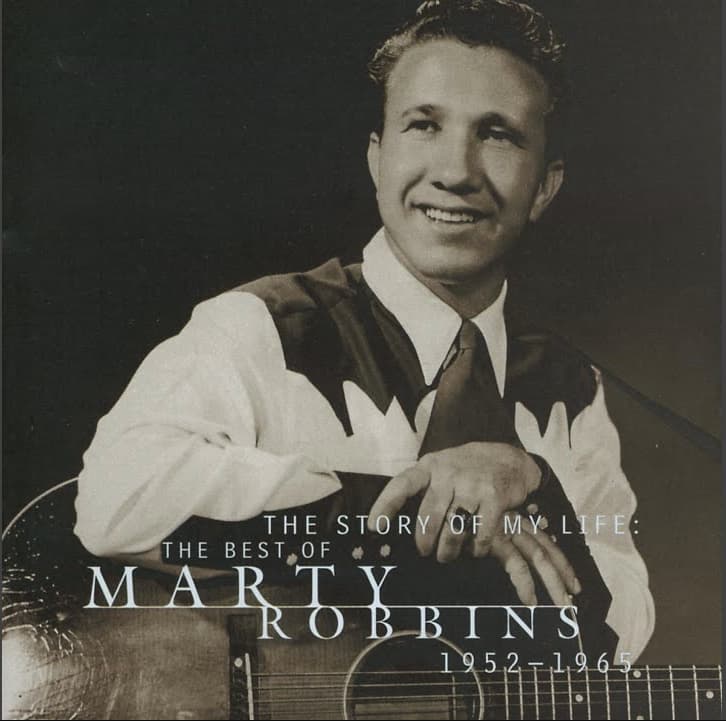
The Quiet Heartache of a Memory: Marty Robbins‘ Tender Ode to Lost Youth and Unrequited Devotion
There are certain songs, like old photographs yellowed by time and touch, that don’t rely on a dazzling spectacle of charts and accolades to secure their place in the heart’s hall of fame. They slip quietly into the background, the B-side to a bigger hit, yet they carry a resonance that time cannot diminish. Such is the case with Marty Robbins‘ tender ballad, “Martha Ellen Jenkins.”
This beautiful, reflective piece was first released in January 1970 as the B-side to one of Marty Robbins‘ most significant hits of the decade, “My Woman, My Woman, My Wife.” While the A-side single soared to Number 1 on the Billboard Hot Country Singles chart, becoming a powerful, enduring testament to marital devotion, “Martha Ellen Jenkins” performed its duty in the shadows. As a B-side, it did not earn its own separate chart position, existing instead as a hidden gem on the successful album, My Woman, My Woman, My Wife, which itself peaked at a remarkable Number 2 on the Billboard Top Country Albums chart. The presence of “Martha Ellen Jenkins” on the flip side was a subtle reminder of the vast, nuanced emotional landscape Marty Robbins could capture, balancing the secure love of his present with the poignant longing for a memory from the past.
The meaning of “Martha Ellen Jenkins” is one of the most relatable and universal themes in song: the nostalgia for a first love—the girl you knew in youth who moved on, yet whose memory remains perfectly preserved, untouched by the complexity and compromises of adult life. It is the story of a man looking back at a specific, idealized young woman who represented everything innocent and perfect about his childhood. The lyrics paint her not just as a person, but as the quintessential image of that time: pure, gentle, and the ultimate measure of all beauty that followed. The protagonist knows she is long married, likely a mother, but in the quiet chambers of his mind, she is eternally the same sweet girl from the past.
The song’s story is built not on dramatic action, like his famous gunfighter ballads, but on quiet introspection. It’s a deep dive into the human heart, acknowledging that even the happiest and most committed among us carry a ghost of a youthful crush. He wasn’t heartbroken; he simply remembers her as the first gold standard of femininity. This reflective tone, delivered by Robbins‘ rich, unhurried baritone, is precisely what makes the song appeal so deeply to an older audience. It bypasses simple sentimentality and touches on the shared experience of maturity—that recognition that the past is a wellspring of powerful emotion, even if it’s no longer your reality.
It is a masterful contrast to its A-side, demonstrating the immense versatility of Marty Robbins as an artist. On one side, the grand declaration of a man utterly devoted to his wife; on the other, the gentle, almost whispered admission of the girl who first taught him how deep that devotion could run. For those who grew up listening to the golden era of country and western, the sound itself—the soft instrumentation, the impeccable phrasing, the genuine emotional honesty of Robbins‘ voice—is a direct conduit to simpler times, a musical embrace that assures you that some memories are simply too beautiful to fade. It’s an ode to the “what if,” delivered by a man happily living his “what is,” and that delicate balance is what gives “Martha Ellen Jenkins” its enduring, quiet strength.